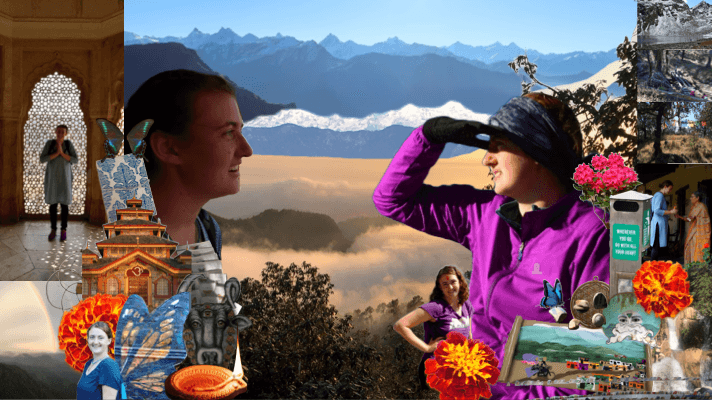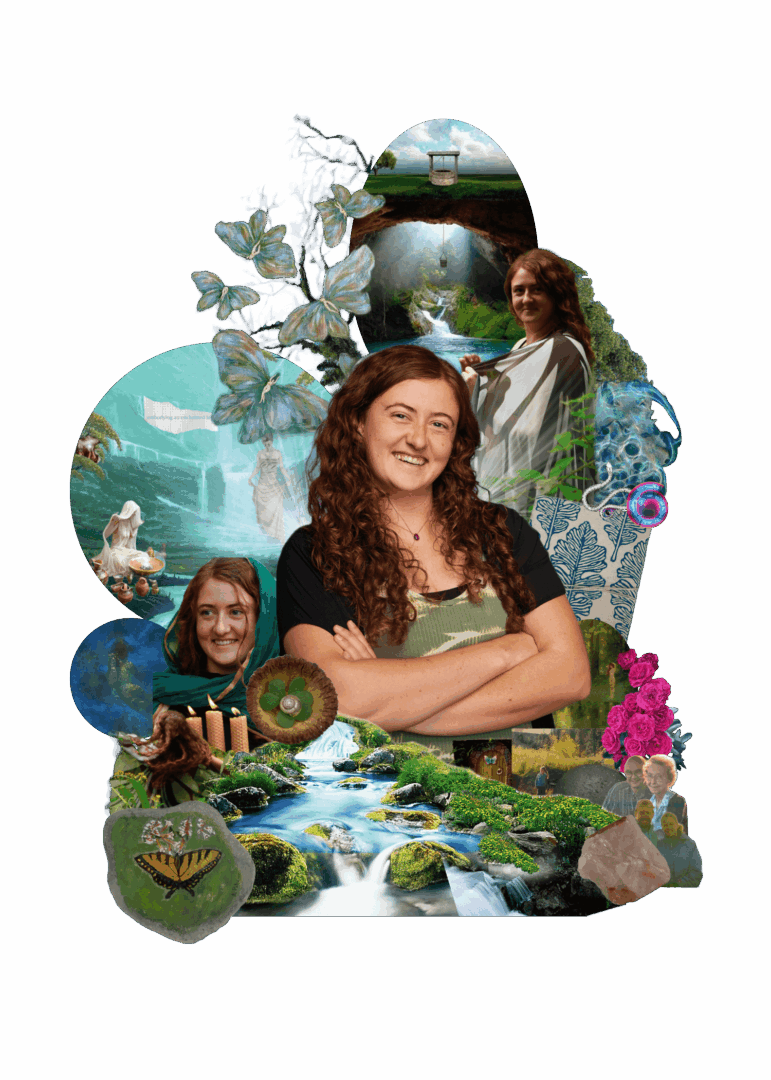We were lucky to catch up with Regina Gee recently and have shared our conversation below.
Regina, thanks for joining us, excited to have you contributing your stories and insights. We’d love to hear about the best advice you’ve ever given to a client? (Please note this response is for education/entertainment purposes only and shouldn’t be construed as advice for the reader)
My work is somewhat intangible – when you start working with me, you often think you know what to expect, which is particularly true for my Envision Program.
One reason for depression is a disconnection from a secure future. Envision is a ten week group program to articulate the future you want to live. We ask the big living questions: *can you imagine? Where do you come from? Who even are you? What really matters? Why does health matter? What do you even want? Where am I going?
I call these living questions because of the poet Rainer Maria Rilke. He writes: **
“be patient toward all that is unsolved in your heart and to try to love the questions themselves like locked rooms and like books that are written in a very foreign tongue. Do not now seek the answers, which cannot be given you because you would not be able to live them. And the point is, to live everything. Live the questions now. Perhaps you will then gradually, without noticing it, live along some distant day into the answer.”
Living questions aren’t about having the answers right now, they are about living our way into the answer. People often start this work with me on a quest for certainty. They believe if they know exactly the path and the goal, then they will achieve security.
But my sneaky agenda with Envision is to show them how security is entirely an inside job.
When one of my clients started working with me, she didn’t see any reason to keep on living in the grand scheme of things. She was not happy. She was very lost and miserable, and she had been that way most of her life. She knew how to live her life depressed and whenever she didn’t know what to do, she would essentially revert back into quitting, running away, and hiding from the world, and having absolutely no support system.
Here’s what she said about Envision:
**I’m grateful for all the time that I spent wallowing in my own shit. But I’m really happy I don’t have to anymore. And now I know that if I if that happens again, I know how to fix it.**
I know that it’s not me sitting alone in my room watching the same comfort TV show, trying to reclaim something from my past. But rather it’s being brave and going out and showing someone and showing a group my shit and being like, Hey. I know y’all got shit, too. You wanna talk about it?
Going through Envision, I realized it’s really f****** hard to be depressed when you have 6 other people that you have to show up with every single week, and they ask you how you’re doing, and they tell you how you’re they’re doing. And it’s like: _How can I be depressed when this person is in the world? How can I be depressed when these people care about me?_
It’s like community is the cure for depression. The permission that this group gave me to be brave enough to show up in any way was what helped the most.
Sessions with Regina & the group made it to where the depression didn’t have to be something that I kept to myself because I was afraid it would make other people hate me. I could bring my depression and be like, hey, guys, look at my shit it really sucks today. No one ever made me feel bad for bringing my sucky shit.
Figuring out my core values has changed my life. I’m able to make decisions now because I don’t have sixteen filters to run it through to make sure it’s right for me. I have two. Does this support my growth? Is this going to help me build community? Yes or no.
Envision has given me permission to handle things in a big girl way. I don’t know any other, put it, but it has shown me that I can grow up and deal with the adult problems of the world. But I don’t have to lose my love for the world and myself, and the process, like so many adults do, they become so jaded because they think it’s what they have to be.
I believe in myself. I’m able to make decisions. And I know what helps with my depression.
She learned to live the questions and was able to go from not wanting to live anymore to trusting herself to make decisions, participate in community, and take really good care of herself. She learned that she is the creator, the artist, of her life and that her life is worth living.
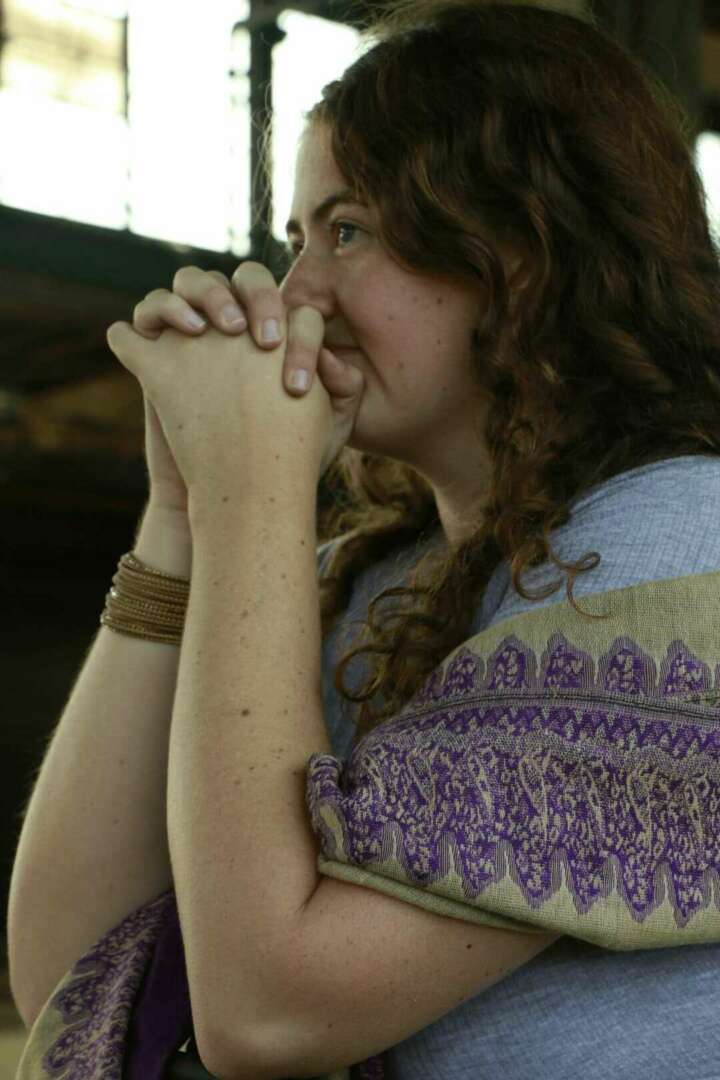
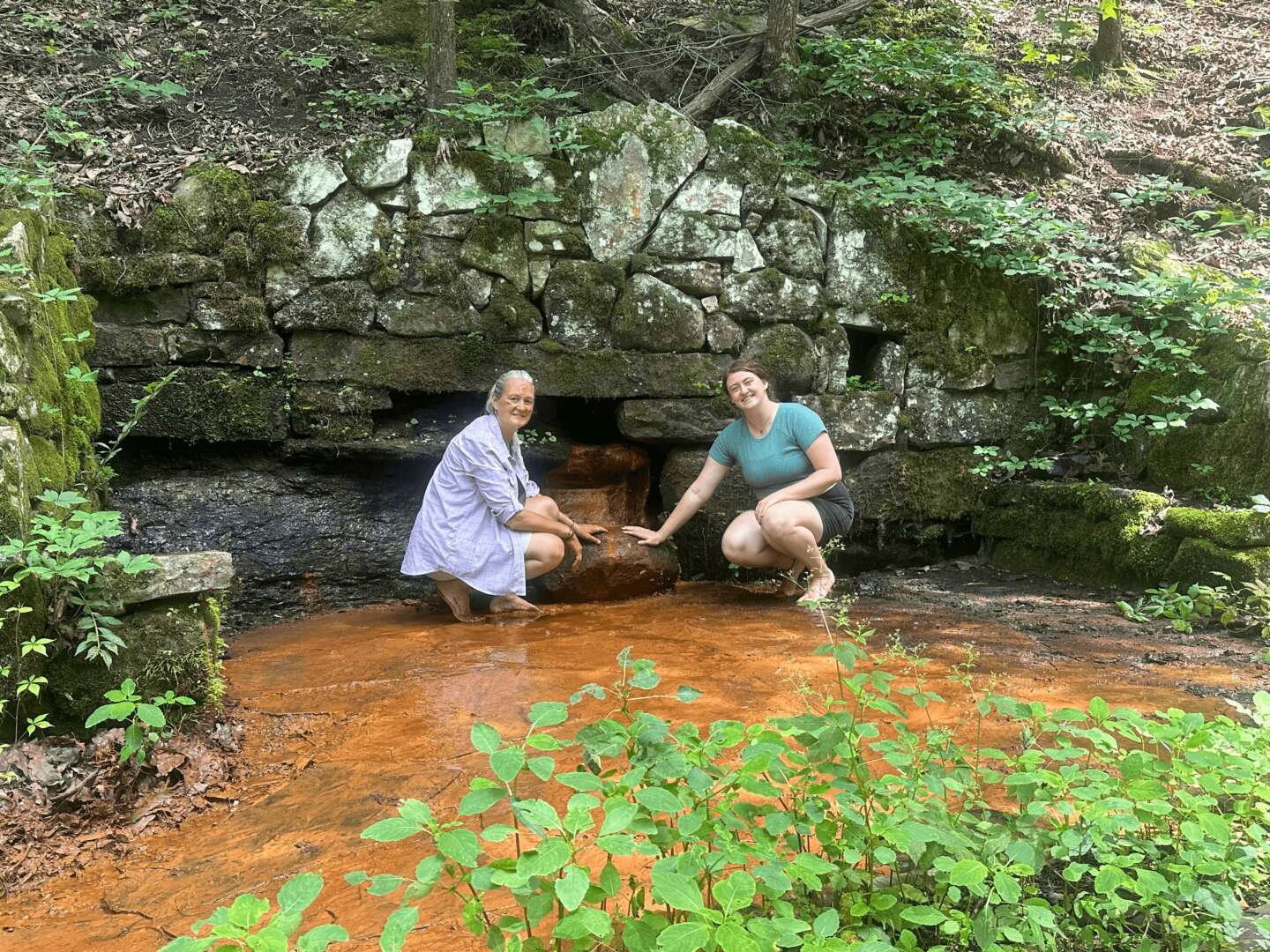
Awesome – so before we get into the rest of our questions, can you briefly introduce yourself to our readers.
Wellspring Coaching is all about relieving depression with integrative care. I work with depression as disconnection and help you find reconnection to your body, your place, your people, to source, and to hope. I do what I do because anti-depressants didn’t work for me, and it was incredibly painful to believe that I was broken because of it. I had to find a bigger, more beautiful, and more true story to learn from and with my depression. And I learned that there is so much we can do to cultivate wholeness and relieve depression in addition to or instead of pharmaceutical intervention.
I believe that not all depressions are disorders, you don’t need a diagnosis to be worthy of help, and that depression is really a signal asking us to take a deeper look at our lives. When we are brave and willing enough to look at the deep dark, it is amazing the gifts we realize and the self-mastery we learn. My approach involves first allowing your experience, identify where you are disconnected, and then begin practicing reconnection. I work one one one, offer group programs, and run workshops. You can attend my free Depression as Disconnection 101 Workshop virtually (it runs twice a month!).
https://calendly.com/wellspringcoaching/depression-as-disconnection-101
My background is in Neuroscience, Anthropology, and Integrative Medicine with particular interests in spirituality. With Wellspring, I have woven my lived experience, my anthropological and neuroscientific research, and my creativity together to offer a holistic way of working with the heaviness of disconnection. My approach emphasizes walking alongside and companionship: I’m not here to be an outside voice telling you what you should do or how to do it. I am here to facilitate your inner voice that already knows exactly what you need and how to do it.
Each of my clients gets a collaborative digital notebook that includes my framework, summary sessions, images, quotes, and any relevant pieces added by either of us. Working with Wellspring Coaching is different that working with other coaches or counselors because of how interdisciplinary it is. We look at you as a whole person and identify where you can engage with your life; it’s not about analyzing what’s going on in your mind but rather about belonging to the world.
When I’m not mapping and coaching, you can find me reading a book or swimming in a creek.
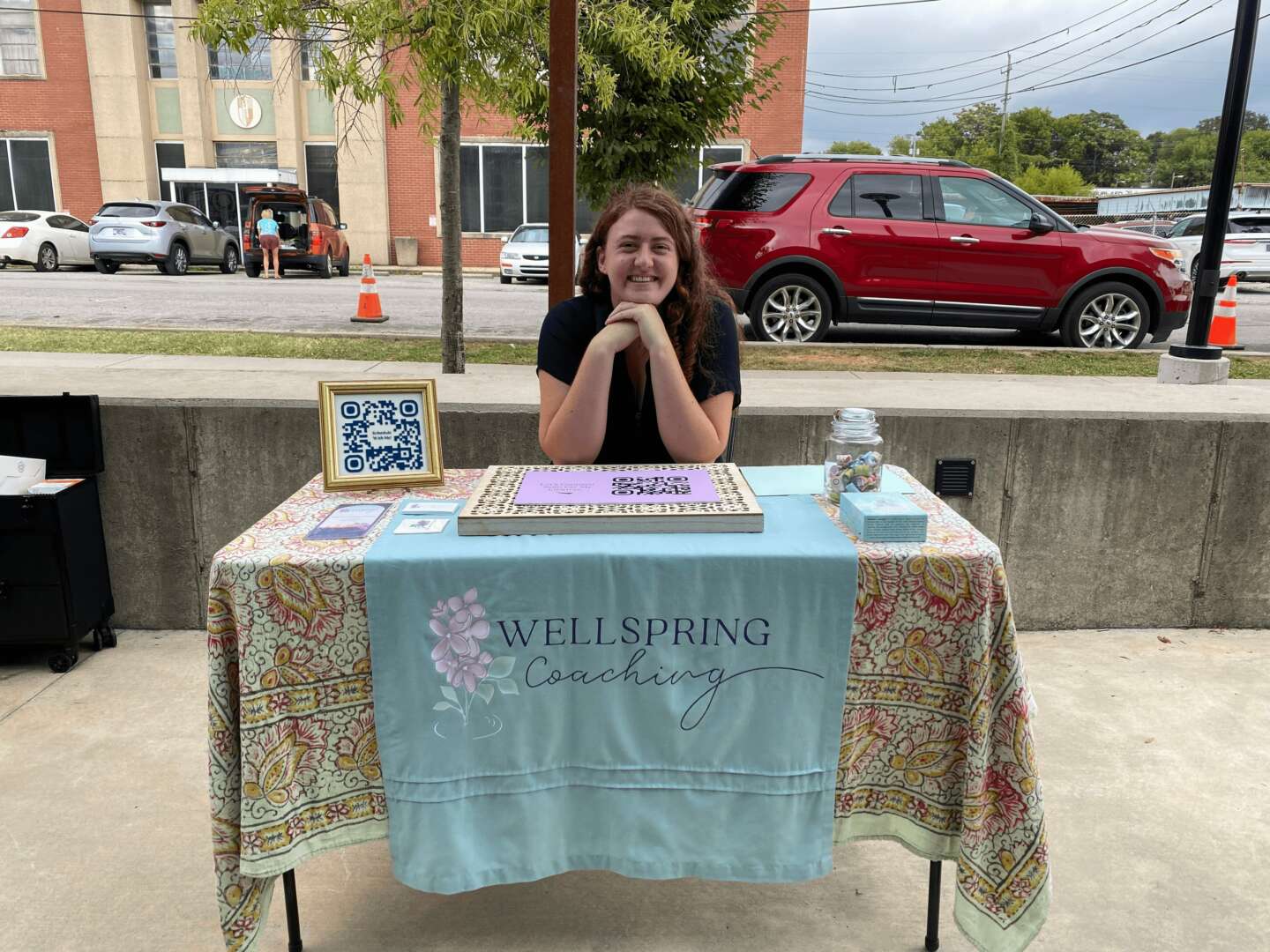
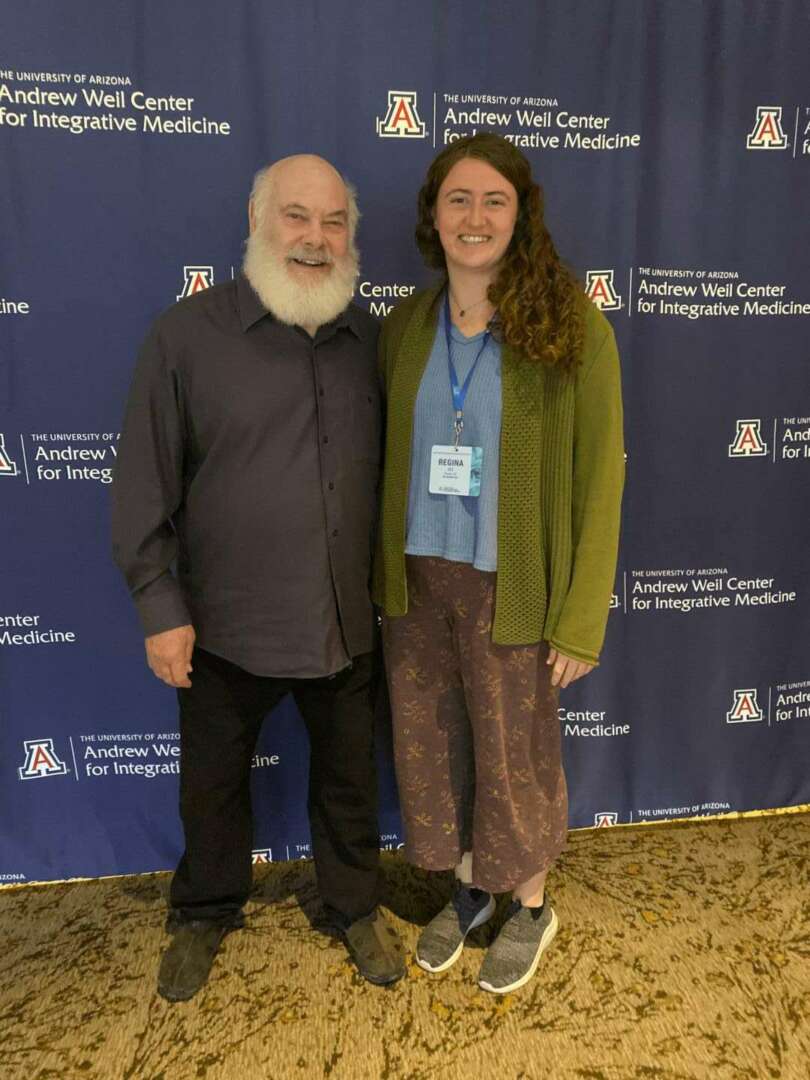
Learning and unlearning are both critical parts of growth – can you share a story of a time when you had to unlearn a lesson?
Learning how to be a coach made me a better human. And it’s because I learned the difference between care and control. As Parker Palmer says, the human soul doesn’t want to be fixed or saved or advised. It simply wants to be witnessed. And I had to unlearn the need to fix people (including myself).
My deeper thinking about care began with Ellen Davis’s concept of skilled mastery. Ellen talks about the word ‘dominion’ in Genesis 1:26-28. Traditionally, these verses were called the dominion verses but are being reimagined as the stewardship verses. Ellen talks about how dominion can also (or instead) be translated as skilled mastery. This difference in translation makes it so that God’s instruction to humans isn’t to dominate the earth, but rather to be skilled masters, which Ellen says suggests more of a craft, an art of being human. If we understand God’s intentions for humans to be caretakers instead of domineerers, we unlock a way of being in the world that is characterized by love instead of control. Transforming dominion into skilled mastery is an invitation to be closer to God in a different way than oppressive systems of the past and present.
Recently, I was reading Ivan M. Granger’s commentary on a poem by Rabindranath Tagore where he writes, _“The gardener does not actually make the seeds grow and flower. The gardener just prepares the environment but it is the divine spark of life ‘hidden in the heart of all things’ that nourishes seeds into sprouts, buds into blossoms, and ripening flowers into fruitfulness.’”_ Care is preparing and tending the environment so that life can take root and greater things can shine through us. It is holding space for the hidden heart of all things.
This alacrity and ease towards life is different then the white knuckled grip of having to control all of creation. In fact, believing we have to control the world is in itself a form of functional atheism which leaves no room for mystery.
To me, skilled mastery is fostering comprehensive knowledge of ourselves and our relationships, allowing us to love ourselves and each other well. It is tending to our garden bed instead of trying to force the plants to grow. Skilled mastery means to cherish (protecting and caring for lovingly); it is an art full of grace and mystery. Care is stewardship as opposed to dominion – **cherishing vs controlling** – and can hold all our longing for love and connection.
Part of the human condition is being able to access our own deep & complex inner worlds while not having that same accessibility to inner world of another. We cannot know another human soul as deeply as we know our own, and so, we have to respect the fact that the soul of another being has a particular wisdom and is best served by respecting and witnessing it than it is by being advised or fixed or saved. Our work is to deeply bow to the souls around us from our own deep well.
Care (instead of control) is a virtue that allows us to love and connect with ourselves and each other in a way that honors and empowers us. I believe being well is directly related to cherishing; in other words, I know that loving, caring, and protecting what matters in ourselves and our world is how we become well and whole humans. Practicing care is a spiritual practice that allows us to step out of our small selves and into a larger ecosystem.
I learn more about care from people like Krista Tippett, Brené Brown, Elizabeth Lesser, Parker Palmer, and Sue Monk Kidd. I find that the people who are trying to answer questions about wisdom, love, and meaning are the teachers who help me understand how to be in the world in a way that holds space for an ethic of care, stewardship, and skilled mastery to persist instead of dominion and control. Recently, I am learning that I am included in this list of people and I make the most sense about care through listening to my own needs. Cultivating my ability to understand who I am and practicing my ability to be a good steward over the being I know best out of anyone allows the seeds in my garden to grow.


How’d you build such a strong reputation within your market?
Building my reputation in my market is all about showing up as I am. People are really good at sensing authenticity. We love to be around the depth of someone being who they are. And I’m someone people know is deep, genuine, uplifting, and kindhearted. And it’s built my reputation because I show up (at the yoga studio, the potlucks, the dances, the receptions) as I am: wearing the clothes that make me feel comfortable, making the jokes and conversations I genuinely find interesting, and building my confidence in who I am and what I have to offer. I’m not afraid to be someone who care a lot, out loud, and in big ways. Wellspring Coaching is an extension of who I am and what I care about, and so I’ve earned the reputation of being someone who thinks and cares deeply, is light-hearted, and well researched.
My husband (Logan Sherwin) has an idea he calls The Pull: leading with trying to be of service and offer something of value before anything else. This mindset is a real devotion to listening well to what the community and the world needs, and then reaching within yourself to contribute what you can. This is different than leading with what you think the world needs, or what you “know” to be true. People can sense when you are genuinely trying to be of service and care about respecting them for who they are, not what they can do for you. And when you achieve this, the pull gives you a reputation of authenticity: people want to be around you, they want to work with you, because they feel good in your presence.
Contact Info:
- Website: https://linktr.ee/wellspringcoaching
- Instagram: https://www.instagram.com/wellspring_coaching
- Other: Substack: https://wellspringcoaching.substack.com/
Tiktok: https://www.tiktok.com/@wellspringcoaching
